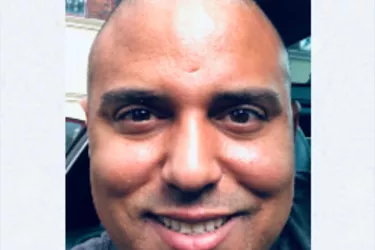A renewed call for advocacy
Stephen is a lawyer in Mind's legal team. Before joining Mind he was a barrister specialising in discrimination and employment. In this blog he looks at mental health advocacy.
If you are hospitalised for a mental health problem there will often be a number of decisions to be made. What medication do you need? What steps can you take to try to leave hospital? What care and treatment will you have when you are discharged back into the community? These are hugely important decisions which need to be made at a time when you may feel least able to make them or to make your preferences and wishes known. Even if you do get your views and feelings across some professionals can be reluctant to listen to you or even to believe you. This is when you might find that an advocate can help you.
An independent mental health advocate, or IMHA, is there to support you to make sure your voice is heard. They can help you understand your rights, support you to get your wishes and opinions heard by mental health professionals and speak on your behalf and represent your interests.
In England you are only entitled to be supported by an IMHA in certain circumstances when you are subject to the Mental Health Act or where certain treatments are being considered. In Wales you are also entitled to an IMHA if you are a voluntary patient not subject to the Mental Health Act.
The Independent Review of the Mental Health Act (the Review) recognised the importance of advocacy. In the foreword to the report, the Review chair, Professor Sir Simon Wesseley said "if I was asked to name the most important theme [of the Review] it would be this - patients must be supported to make more choices for themselves". He went on to say that access to advocacy was an integral part of supporting patients to make choices for themselves, and that this was essential to upholding their dignity.
The Review made a number of recommendations around advocacy, including the following:
- The right to an IMHA should be extended to all inpatients receiving treatment for a mental health problem. This includes voluntary patients and those awaiting transfer from prison or immigration removal centres.
- People preparing an Advance Choice Document (a document that allows you to set out your wishes about future care and treatment) should be entitled to an advocate so that their choices are better informed and clearly recorded.
- Advocates should be given a formal role in supporting patients with their care planning.
- Advocates should be able to apply for discharge and challenge treatment decisions on the patient's behalf where they do not have capacity to do so for themselves.
- Advocates should receive better training, not least in "cultural competence" which will develop their ability to support people from diverse communities.
We often hear about informal patients who aren't told that they don't have to accept treatment the clinical staff propose or are told that they will be discharged if they don't take their medication; or informal patients who are threatened with sectioning or subjected to delaying tactics if they ask to leave hospital. Giving informal patients access to an advocate will ensure that they are empowered with the information they need and that they are supported when professionals consider whether to make the admission compulsory.
The Review recommends that advocacy should be provided to patients on an "opt-out" basis. This will mean that those entitled to an advocate will be automatically referred to one rather than having to request one, and advocates will regularly visit wards to speak to patients.
Some advocates are already performing some of the things which the Review has proposed, and a few services already offer advocacy on an opt-out basis. But a patient's entitlement to advocacy needs to be spelled out in legislation so that these vital services are not just optional extras, but legally enforceable rights which are not ignored if austerity bites deeper.
A word about cultural competence: Marcel Vige, Mind's Head of Equality Improvement, has blogged about inequalities faced by Black people from African and Caribbean heritage in the mental health system. Advocates whose training or lived experience gives them a sharp understanding of racialised issues and knowledge of the inequalities in care and treatment faced by Black people can ensure that marginalised voices are better heard and dignity upheld.
We think that the Review's recommendations on advocacy are really important. If the government implements them then it would strengthen people's voice, protect their rights and support people to express their views and wishes so these can be reflected in treatment plans and care from the beginning.

See what we're campaigning on

Our campaigns
We'll fight your corner. We believe everyone with a mental health problem should be able to access excellent care and services. We also believe you should be treated fairly, positively and with respect.
Share your story with others
Blogs and stories can show that people with mental health problems are cared about, understood and listened to. We can use it to challenge the status quo and change attitudes.

















